Isaac Li
An Intelligent Assistant for Converting City Requirements to Formal Specification
Jun 14, 2022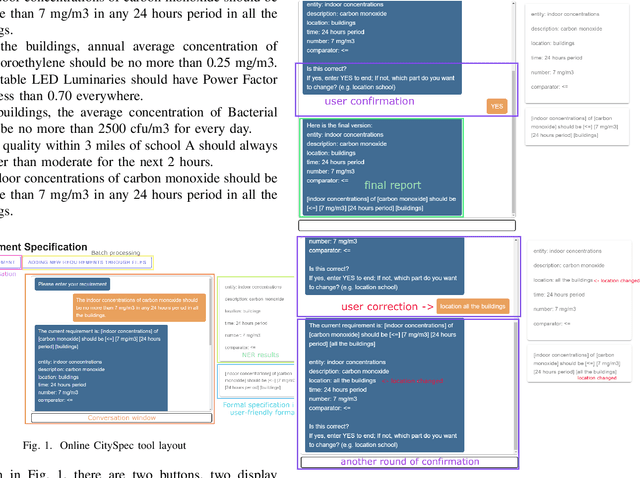
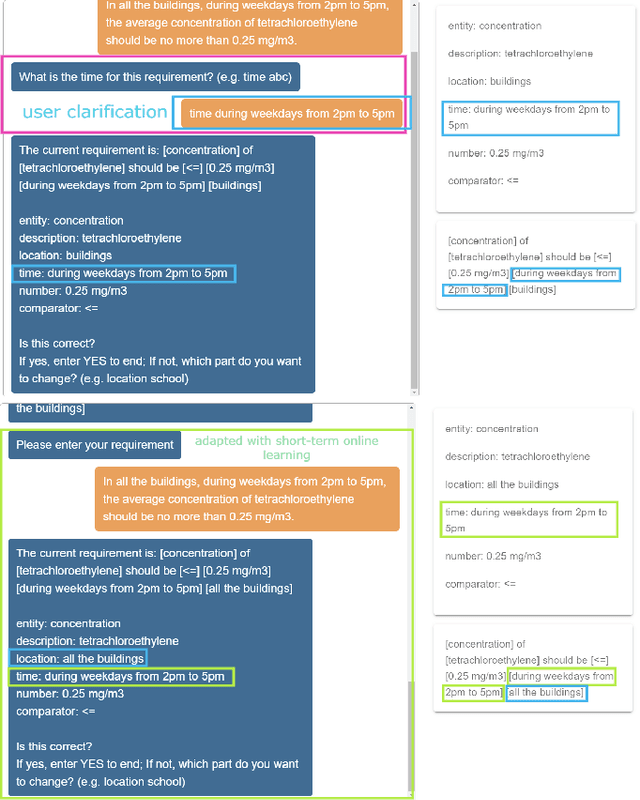
Abstract:As more and more monitoring systems have been deployed to smart cities, there comes a higher demand for converting new human-specified requirements to machine-understandable formal specifications automatically. However, these human-specific requirements are often written in English and bring missing, inaccurate, or ambiguous information. In this paper, we present CitySpec, an intelligent assistant system for requirement specification in smart cities. CitySpec not only helps overcome the language differences brought by English requirements and formal specifications, but also offers solutions to those missing, inaccurate, or ambiguous information. The goal of this paper is to demonstrate how CitySpec works. Specifically, we present three demos: (1) interactive completion of requirements in CitySpec; (2) human-in-the-loop correction while CitySepc encounters exceptions; (3) online learning in CitySpec.
CitySpec: An Intelligent Assistant System for Requirement Specification in Smart Cities
Jun 07, 2022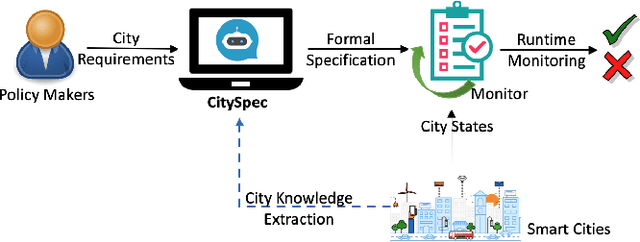
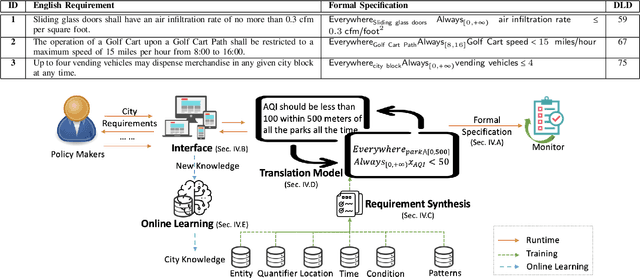

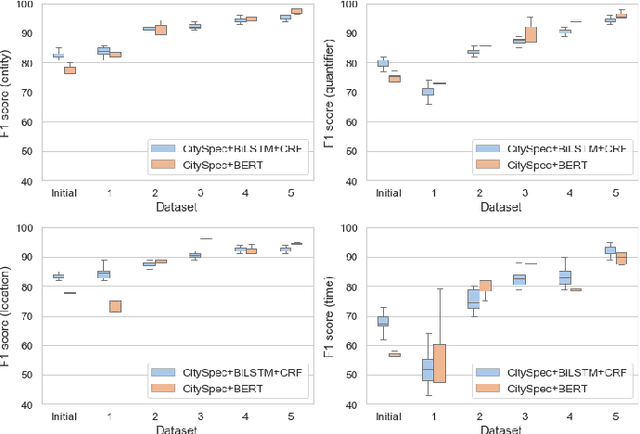
Abstract:An increasing number of monitoring systems have been developed in smart cities to ensure that real-time operations of a city satisfy safety and performance requirements. However, many existing city requirements are written in English with missing, inaccurate, or ambiguous information. There is a high demand for assisting city policy makers in converting human-specified requirements to machine-understandable formal specifications for monitoring systems. To tackle this limitation, we build CitySpec, the first intelligent assistant system for requirement specification in smart cities. To create CitySpec, we first collect over 1,500 real-world city requirements across different domains from over 100 cities and extract city-specific knowledge to generate a dataset of city vocabulary with 3,061 words. We also build a translation model and enhance it through requirement synthesis and develop a novel online learning framework with validation under uncertainty. The evaluation results on real-world city requirements show that CitySpec increases the sentence-level accuracy of requirement specification from 59.02% to 86.64%, and has strong adaptability to a new city and a new domain (e.g., F1 score for requirements in Seattle increases from 77.6% to 93.75% with online learning).
 Add to Chrome
Add to Chrome Add to Firefox
Add to Firefox Add to Edge
Add to Edge